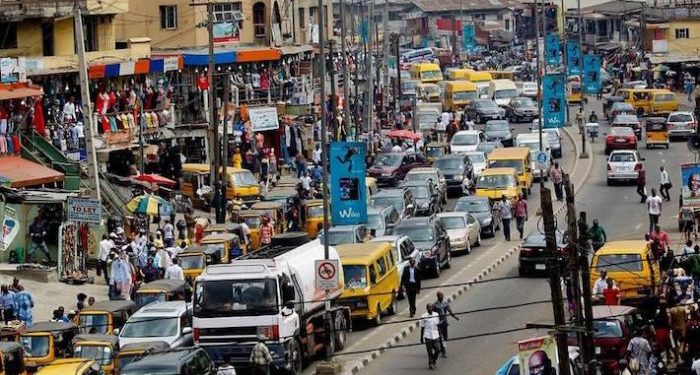Nigeria’s economy is facing heightened risks, exacerbated by unpopular government reforms and worsening living conditions, according to the latest report from SB Morgen Intel. The SBM Intelligence 2024 Africa Country Instability Index reveals a sharp decline in Nigeria’s economic stability, with rising food inflation, growing poverty, and persistent insecurity.
The new government’s bold reforms, including the removal of fuel subsidies and the floating of the naira, have added to the country’s mounting challenges. These measures, while aimed at addressing economic inefficiencies, have led to widespread public discontent. The subsidy removal, in particular, has resulted in significant price hikes, contributing to inflation reaching a 28-year high. This has caused a severe cost-of-living crisis, sparking protests across the nation.
Moreover, the exchange rate unification in June 2023 led to the naira losing more than 70% of its value over the past 18 months. This volatile currency situation, combined with soaring energy prices, has made it increasingly difficult for businesses to stay profitable. The impact is evident in the closure of numerous local firms and the exodus of multinational companies from the country.
Nigeria’s risk score in the SBM Intelligence report dropped to 45 in 2024, down from 39 in 2023, signaling a significant increase in political and economic instability. This marks a downgrade from the country’s previously stable status, with Nigeria now sharing this high-risk category with countries such as Ethiopia, Côte d’Ivoire, and Togo.
The report also highlights that the political fallout from the 2023 elections has left Nigeria more polarized than ever. The reforms, despite their intention to improve the economy, have deepened divisions and triggered widespread discontent.
As businesses struggle with rising costs and dwindling profits, the broader economic landscape continues to deteriorate. The country’s challenges are compounded by security concerns that persist across all geopolitical zones, further diminishing confidence in the economic future.
Comparing Nigeria’s performance to other African nations, the report reveals that the overall risk score for Sub-Saharan Africa improved slightly in 2024, from 47.7% to 45.4%. However, countries like Botswana, Seychelles, and Zimbabwe also saw significant losses in their risk rankings, indicating that the broader region is still facing substantial economic and governance challenges.
Looking ahead, Nigeria’s economic outlook remains uncertain. The country’s leadership must urgently address the impact of these reforms and seek ways to stabilize the economy, restore investor confidence, and reduce the social tensions that continue to plague the nation.










